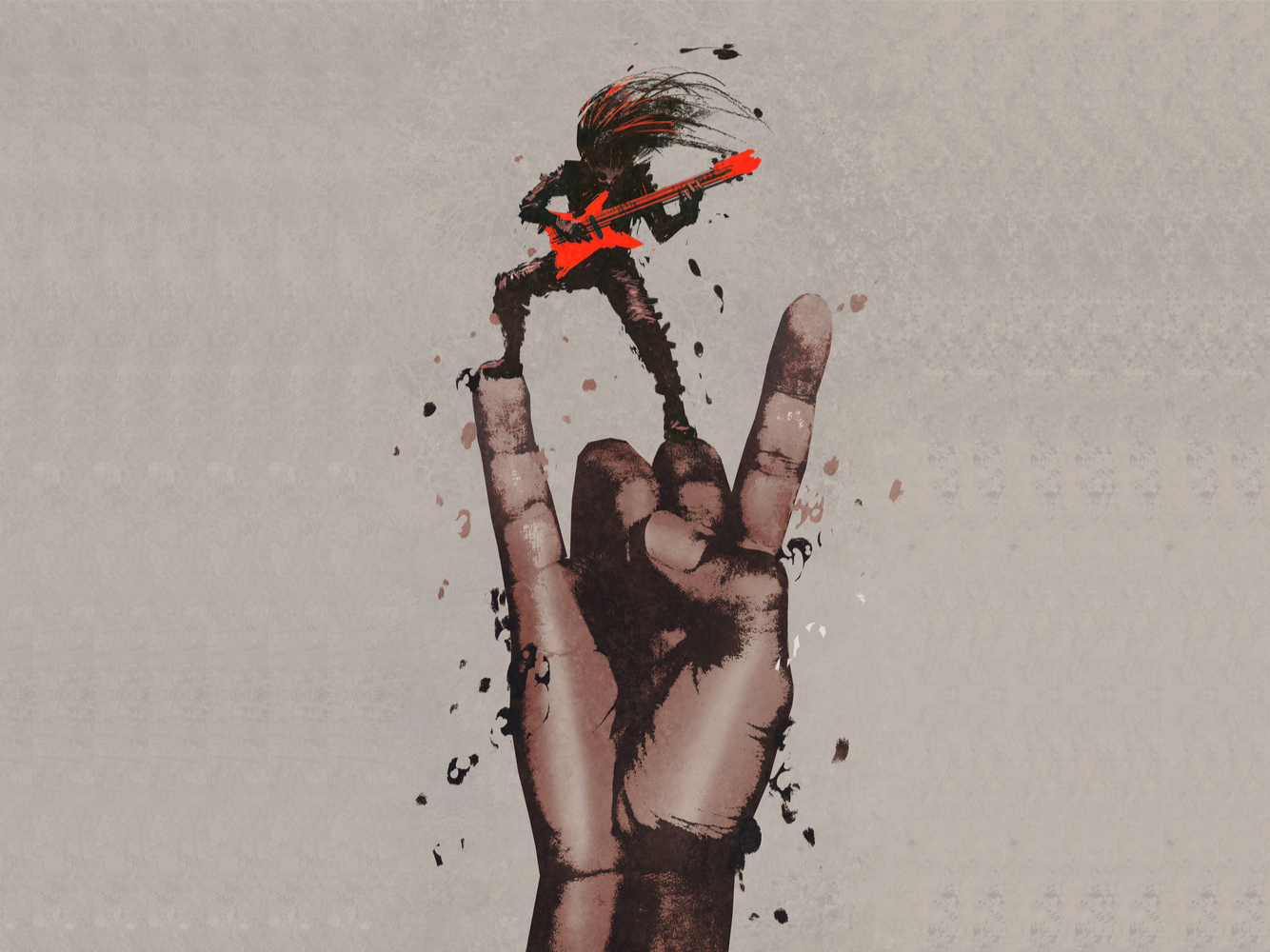Podcast: Download
Subscribe: Apple Podcast Google Podcasts Spotify
For episode 201 of The Search Engine Journal Show, we have a special panel composed of fellow metalheads in the search industry:
- Navah Hopkins, Director of Paid Media at Hennessey Digital and contributor for Search Engine Journal’s Ask Me Anything About PPC column.
- Jesse McDonald, Global SEO Strategist at IBM and also a contributor for Search Engine Journal.
- John McAlpin, SEO Director at Cardinal Digital Marketing, and also a contributor for Search Engine Journal.
In today’s podcast, we decided to have a little fun. We love metal and we also love all things search, so we figured why not put the two together?
It turns out there’s a lot of correlations between metal and SEO.
A Stack Overflow study found that metal, including black and death metal, is a popular genre, especially in coding because it improves productivity and focus.
Pandora developer Rob Whitlock said the following:
“When I hear clean singing, my brain starts tracking what they’re saying and it’s distracting. But with the vokills, it’s just a sound. You don’t think about what they’re saying so it just fades into the background.”
“If I know I’m going to be at a task for a long time, I’ll put black metal on,” Whitlock added. “Especially if it’s something I’m a bit sad about doing. … Black metal is emotionally evocative in a way that death metal isn’t. There are times when you’re coding and you sort of need that emotional awareness.”
Let’s dive into our most metal edition ever.

How have you all found metal to help productivity and focus – and has it for you?
Navah Hopkins (NH): It’s actually really funny. If my day doesn’t start with a very specific mix of what I call power songs, I am stressed out the entire day.
I very specifically need at least 90 minutes of listening to songs. I’m a little bit different than the study.
I actually need really pretty clean vocals, so I’m the other side of metal. But if I don’t begin my day with that 90 minutes, not only am I not as productive, I tend to lose even more hours out of what I can do, creative, analytical tasks.
So my mornings tend to be very focused on creating content for public speaking thought leadership, but then also for client accounts, the ones that are a little trickier, and I’ll put those in the morning when I’m listening to that music, starting my day off well.
If, however, I have a lot of back-to-back calls or meetings, and I can’t recharge with a song in between, every subsequent meeting gets worse and worse and worse, every subsequent task gets worse and worse and worse.
So I don’t want to say something as trite as “listening to music is as important to me as oxygen”, but at least for my mental health and my productivity, it’s very close there.
John McAlpin (JMA): Metal is kind of my secret weapon when working because I tend to listen to a lot of different things while I’m working.
I have severe tinnitus and ADHD, so that combined, I have to have some kind of external stimulus outside of work. And so for me, metal does two things.
One, I do like the concept of not listening to the vocals or the lyrics so much, but to me it’s more of the rhythmic.
When you have a really good breakdown or a fast section, it really makes me feel like I’m in a flow and it helps trigger my brain into a faster way of thinking, so I’m a little bit sharper.
And I think, especially if I have a big pitch, or I’m making a big audit where I really need to display confidence, it helps give me that confidence whenever I’m working.
Jesse McDonald (JMD): That’s what’s interesting for me, I actually feel like music is as important as oxygen to me.
I need it to get through the day. It’s been that way for a really long time for me.
So an example of the productivity thing that I’ve had from a couple of years ago, I got a buddy into the band Animals as Leaders, which is a very progressive instrumental band.
He was all about them, listening to them like crazy whenever he would work.
And I would try, but I wouldn’t be able to focus. I was always paying more attention to what the music was doing.
And I kind of determined that it was because it was instrumental.
So I started working on a WooCommerce site that I had to edit very heavily, and I found that the thing that kept me going was listening to The Dillinger Escape Plan on repeat.
And if you haven’t heard Dillinger Escape Plan, they kind of fall into this progressive mathcore type thing, which is very dissonant and chaotic.
Listening to the songs, “Milk Lizard”, “Black Bubblegum”, and “Prancer” on repeat got me through two weeks of editing that WooCommerce site.
Anything else I listened to, I would not focus. It was weird.
And if you go listen to them, it’s weird that it worked for me, but for some reason that chaos gets me.
It keeps everything out of my head and lets me focus on one thing.
I listen to it when I go to sleep. Same thing, that’s how I fall asleep is listening to something like that because it narrows my focus.
So I find productivity big time when I’m listening to crazy chaotic metal.
What do you think it is about metal in particular that inspires loyalty and how can we use that knowledge in what we do in SEO and marketing?
NF: There’s a story in a lot of songs that speaks to something greater than ourselves.
Like if we can be the champion that vanquishes evil, if we can be the devil calling in the seventh son of the seventh son, if we can harness all of that power, there’s something very special about that.
And the gift of metal is that it makes that accessible to not just one person, it makes it accessible to all.
So translating that to marketing, how do we identify the personas that will best identify with the message that we’re trying to put out there, and modify it so that it speaks to the correct user?
Metallica did a cover of Pokémon.
That is the exact kind of content that you would want to put in front of a kid to get them hooked on Metallica and follow that trajectory, as opposed to exposing them to, I don’t know, “One”.
It’s a slower song. It’s going to be more difficult for a kid who’s very energetic, I mean there are exceptions always, but to get them into it.
So just understanding your messaging.
JMD: What’s interesting about a lot of metal bands, and especially early to mid-2000s, especially the new wave of American metal, so bands like Lamb Of God, and Trivium, and Unearth, and Killswitch Engage, they were all trying to do new stuff every time they would put out a new album…
While that’s a lot of technique-based issues, they would constantly change stylings.
So you’re having this progression constantly, but the focus on quality is always there.
That kind of translates back to what you’re trying to do with anything related to search, especially when it’s content-related.
You’re always looking to evolve, but you have to make sure the quality’s there, because if the quality is not there, then it’s not going to resonate with people…
JMA: I think it’s really interesting to me, the bands that you liked and then didn’t like based on social norms.
I remember growing up really liking certain bands, and some people were like, “Oh, that’s not cool to like.”
And so I guess when you’re younger, you’re like, “OK, so I should probably not like that band anymore.”
And when you get older, you’re like, “Why the hell did I stop listening to that band? They’re still great.”
Like I saw Keith Goode in the comments bring up Cradle of Filth.
And I remember listening to that in high school, and then someone’s like, “Really? Black metal? That’s weird.”
And then I come back and like, “That was a good song. What am I talking about?”
So you got to be loyal to what you like…
Danny Goodwin (DG): I think the big thing is knowing your audience, and knowing when it’s OK to do that evolution…
I don’t think Opeth could have gone from “Blackwater Park” to the Pink Floyd style… There was a transition there, and I assume that they felt like their audience was ready for that.
We can talk about controversy in metal… Would we consider Mayhem the most notorious band in black metal history, possibly?
JMD: Probably. I mean they basically made it up, and their story’s, at this point, so expanded, and lied about, and everything that yeah, they probably are the most controversial band ever.
JMA: Yeah, so much mythology behind it now, too.
DG: They’ve created this whole mythology around the band, which, it’s pretty impressive. It just grows, and does its own thing…
JMA: I mean brands could do the same thing too. If you can create a brand mythology and things like that.
I think Disney is a good one. There’s a whole lot of controversy and mythology behind Walt Disney himself, yet they still are on top.
NF: In speaking to the times that we live in, no matter what side you come out on, you will be controversial in your opinion to the other side.
It’s kind of understanding, “Do I care that there’s controversy? Is my core customer going to care that I am being [fill in the blank]?”
In terms of controversy, the band that comes to my mind is actually Ghost. Interesting vocals, interesting sound.
He basically has the entire band enslaved, yet we all go and cheer on those songs because, of course, we do and it’s just at what point is controversy useful.
It’s sharpening that edge in marketing, that edge in content, versus what is just terrible.
This podcast is brought to you by Ahrefs and Opteo.
To listen to this Search Engine Show Podcast with Navah Hopkins, Jesse McDonald & John McAlpin:
- Listen to the full episode at the top of this post
- Subscribe via Apple Podcasts
- Sign up on IFTTT to receive an email whenever the Search Engine Journal Show RSS feed has a new episode
- Listen on Spotify, TuneIn, Stitcher or Overcast
Visit our podcast archive to listen to other Search Engine Journal Show podcasts!
You can watch Search & Destroy: SEO, Search Marketing & Heavy Metal Music on YouTube.
Image Credits
Featured Image: Paulo Bobita

![Search & Destroy: SEO, Search Marketing & Heavy Metal Music [PODCAST]](https://www.searchenginejournal.com/wp-content/uploads/2020/07/sejshow-featured-image-ep201-5efd969b73e48.jpg)



![AI Overviews: We Reverse-Engineered Them So You Don't Have To [+ What You Need To Do Next]](https://www.searchenginejournal.com/wp-content/uploads/2025/04/sidebar1x-455.png)